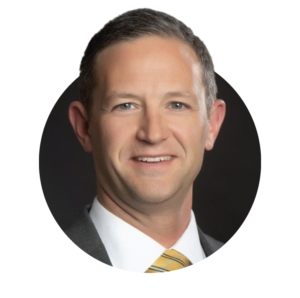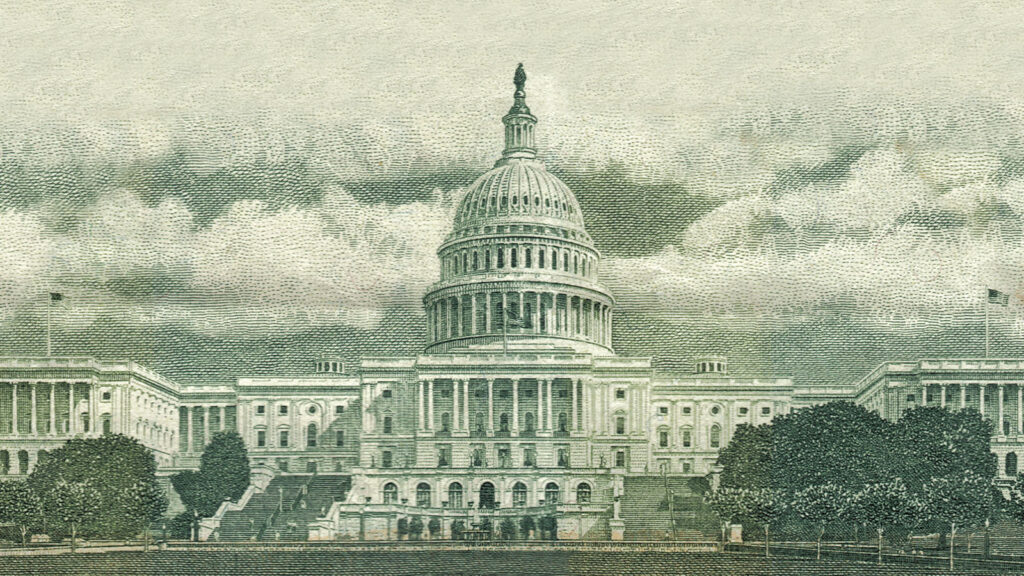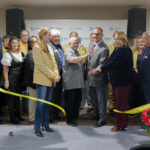Every few years Uncle Sam maxes out the latest credit card, and Capitol Hill erupts with a debt ceiling hissy fit. All the political drama is foolish, irresponsible, and just plain unbusinesslike.
Cut spending? Raise taxes? Some of both? Or oftentimes neither, as Washington perpetually spends more than it takes in.
When additional spending is desired, you need to have the revenue to do so first. If hard times hit and some temporary deficit spending is warranted, you have to develop a plan to pay down that debt once good times return.
But to overspend in the good times, then really overspend in the bad times, is no way to run the most powerful government in the world, let alone a state capitol, town council, small business, charity project, or even a lemonade stand.
State spending has to keep it real
Closer to home, our state and municipal governments thankfully have balanced budget requirements, and are unable to print money. When revenue is up, they have more to spend. When revenues are down, they have less to spend.
A small committee representing the Missouri House, Senate, and Governor’s offices is joined by Mizzou Economics Professor Joe Haslag before each legislative session to hash out real-world tax-collection estimates, to guide the annual budget process.
Not to say our state government is running a tight ship overall. State worker wages have waned, as politicians ignore labor market realities. As many private employers realize these days, when employee salaries are not market-based, many of their best people leave for greener pastures. This should not be ideological.
Highway to Heck
Our state highway network has been too neglected for decades now. The Missouri Department of Transportation (MoDOT) is overextended because, in the 1950s, the state government absorbed rural lettered highways to subsidize farmers bringing their products to market.
We had a good fuel tax in place, but since the 1990s the rate has been eroded to inflation. Any adjustment proposal gets met with cries that it’s a tax increase — a half-truth, as motor fuel taxes should be described like a user fee: generally the more you use the roads, the more fuel taxes you pay.
A small fuel tax increase squeezed through in 2021, but sorry folks, it still won’t be enough to play catch up. It was federal COVID largess that put the recently approved upgrade of I-70 over the top to become three lanes in each direction across the state.
Once this temporary bonanza subsides we’ll be back to hard decisions, at which point they should further adjust the fuel taxes for inflation, and/or toll all the interstate-type highways. Also delegate minor MoDOT roadways back to the locals, such as College Boulevard, Route K south of Rock Bridge Elementary, or West Broadway past Hy-Vee; none of which carry any sort of cross-state traffic.
The Business Loop improvement district is already actively proposing this, as The Loop wants to fix up what is obviously a local street, which MoDOT effectively abandoned years ago.
Keep the lights on
Columbia’s public-owned utilities are a hot topic in that rates might soon be hiked across the board. Yep, inflation is a thing. Yep, worker pay has not kept pace with market wages. But deeper down, come to find out that local public infrastructure has not been kept up for a long time, too
Political indecision has become chronic in COMO. (Let’s not get started on the trash debate that simmered for years.)
But even when we have had public votes to approve utility infrastructure improvements, political indecision nixed it. Loud locals didn’t want ugly electric poles near their homes. City Hall decided it was unable (or unwilling) to run a new sewer line out to Midway.
So here we are years on, with unbuilt projects galore, the rest of the network aging, in a community that keeps on growing, risking the specter of brownouts and low water pressure. Surely the price tag on those delayed projects has increased substantially.
A few heroic concerned citizens such as John Conway, Jim Windsor, Tanya Heath, and Bill Weitkemper are now sounding the alarm all over town to any interested citizen who will lend an ear. Come to find out the electric utility has been operating in the red lately, so something has to give. (Source: www.comobuz.com.)
Yet another high-dollar consultant was hired to figure out something our professional staff seemed to know all too well already.
The businesslike approach would be to take stock of our current situation, realize mistakes have been made in the past, and make the decision to get a long-term plan together to right the ship over the next five to 10 years. Be frank with everybody that their bills are going up — like it or not.
Buses to nowhere
Speaking of consultants to rehash the obvious, Columbia Transit is having the bus system studied (yet) again.
Here’s a free preview: the buses run too infrequently and to not enough places, potential riders are confused, so buses run around town largely empty and the system bleeds money. When you cut fares to free, and there are still not enough takers, something is missing the mark.
I talked to a local business leader who observed transit success on the Columbia Chamber of Commerce’s site visit to Gainesville, home of the Florida Gators. Like many college towns, Gainesville’s bus system thrives on strong ridership from college students. Former Mayor Bob McDavid floated this idea a decade ago but unfortunately, it went over like a lead balloon at the time.
If Columbia Transit is to recover, we need to get city hall, the environmental activists, Mizzou students, and local employers together to refocus the whole thing. Establish a core route map, run them often, and look into subsidizing Uber vouchers for last-mile service beyond that. Like any business, realize that Columbia Transit can’t be everything to everybody, so focus on your target market, and keep from going broke.
Public entities need to have multiple bottom lines: serve the public and offer stable services, but also observe economic realities.
Governments aren’t businesses, but they need to be run more businesslike.

Steve Spellman is a lifelong Columbia-area resident and political observer.










